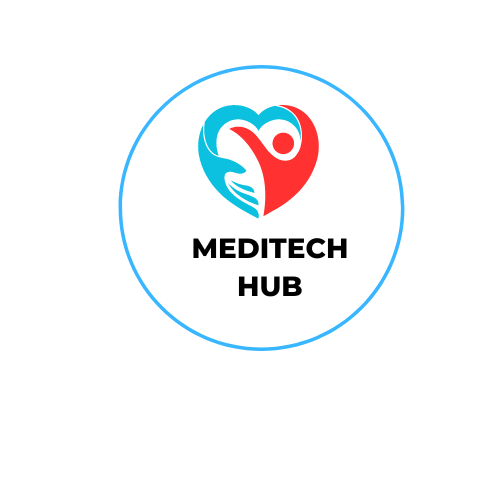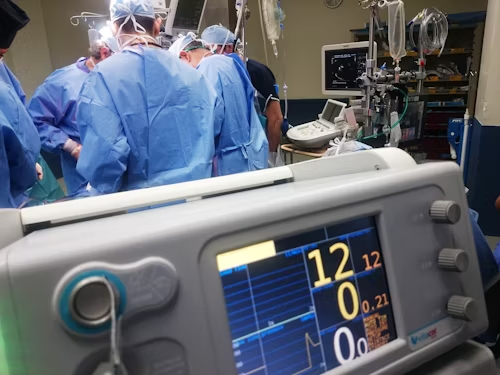Artificial Intelligence (AI) is revolutionizing healthcare, transforming diagnostics, treatment, and patient care. With advanced algorithms and machine learning, AI enhances diagnostic accuracy, personalizes treatment plans, and improves patient outcomes.
AI reshapes the future of healthcare by integrating with healthcare technologies like medical imaging, predictive analytics, and virtual health assistants.
Revolutionizing Diagnostics with AI
In this blog post, we delve into how AI-driven innovations optimize clinical workflows and make healthcare more accessible, efficient, and effective for patients globally.
AI algorithms are transforming diagnostics, making it quicker, more accurate, and often more cost-effective. Through machine learning and advanced data analysis, AI is becoming an indispensable part of detecting and diagnosing various health conditions.
AI in Medical Imaging
Medical imaging has benefited immensely from AI advancements. AI systems can now interpret X-rays, MRIs, and CT scans with unparalleled accuracy. These systems analyze images to detect abnormalities that even experienced radiologists might miss.
For instance, Google’s DeepMind AI has shown remarkable proficiency in reading mammograms, sometimes better than human experts. Another example is Zebra Medical Vision, whose AI algorithms scan imaging data to identify liver diseases, cardiovascular conditions, and more, providing timely insights that improve patient outcomes.
Remote Monitoring and Wearable Technology
Remote monitoring systems and wearable devices are leveraging AI to track patients’ health metrics continuously. These tools alert healthcare providers if they detect potential issues, ensuring timely interventions.
The Apple Watch, with its AI-driven health monitoring features, can detect irregular heart rhythms and notify users to seek medical attention. This kind of proactive, real-time monitoring is revolutionizing chronic disease management and patient care.
Predictive Analytics for Disease Detection
Predictive analytics, powered by AI, is making waves in disease detection. By examining vast datasets, AI can identify patterns that signify the early stages of diseases. This allows for earlier and often more successful treatment interventions.
For example, the IBM Watson Health, uses AI to predict the likelihood of diseases like diabetes and cancer by analyzing patient records and genetic information. These predictions help healthcare providers create more effective screening and prevention strategies.
Enhancing Treatment Plans through AI
AI is not only diagnosing diseases but also revolutionizing treatment plans. By personalizing treatment based on individual patient data, AI is enhancing the effectiveness of therapies and reducing the time it takes to see improvements.
AI in Drug Development
The drug development process is notoriously long and expensive! AI is changing this by streamlining research and reducing the time to market for new medications. Machine learning models predict how different chemicals will interact, identifying promising drug candidates much faster.
An example here is the BioXcel Therapeutics, which uses AI to expedite its drug discovery process. This has led to quicker development of treatments for conditions like schizophrenia and cancer, bringing much-needed relief to patients sooner.
Tailored Treatment Protocols
Personalized medicine is another area where AI shines. By analyzing genetic data, AI can suggest customized treatment options, especially in oncology. These tailored protocols ensure that patients receive the most effective therapies based on their unique genetic makeup.
Companies like Tempus use AI to analyze genetic sequencing data, providing clinicians with insights that help them choose the best treatment options for cancer patients. This approach boosts treatment success rates and reduces unnecessary side effects.
Improving Patient Care with AI
Patient care experiences are also improving thanks to AI. From virtual health assistants to remote monitoring, AI is making healthcare more accessible and responsive.
Virtual Health Assistants
AI-powered virtual health assistants are revolutionizing patient engagement. These chatbots and virtual assistants provide instant support, answer questions, and even schedule appointments.
The Future of Healthcare with AI Technology
The future of healthcare is being shaped heavily by AI. Innovations in this field promise even more ground-breaking developments in diagnostics, treatment, and patient care.
AI will continue to evolve, potentially enabling real-time diagnosis through mobile devices and improving telemedicine services. Personalized medicine will become more precise, and AI will likely play a critical role in global health management, making quality healthcare accessible to all, regardless of location.
Conclusion
In conclusion, AI’s transformative impact on healthcare extends across diagnostics, treatment, and patient care. By making diagnostics more accurate and timelier, personalizing treatments, and enhancing patient care experiences, AI is setting the stage for a healthier future. As AI technology continues to advance, its potential for further innovation in healthcare seems boundless, promising better outcomes and improved health for all.
The future of healthcare is becoming more personalized, proactive, and inclusive.
Stay updated with Meditech Hub for the latest on AI’s impact on healthcare technology and digital health innovations.


